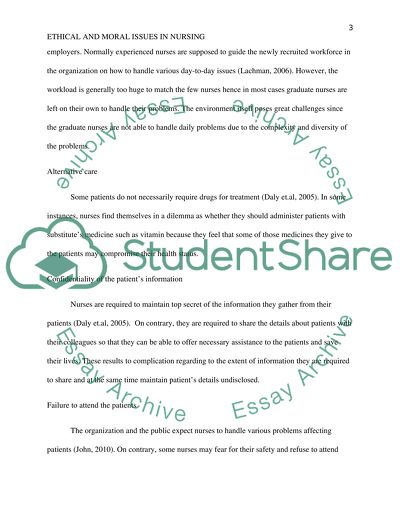Cite this document
(“Ethics and Moral Issues in Nursing Term Paper Example | Topics and Well Written Essays - 1250 words”, n.d.)
Retrieved from https://studentshare.org/nursing/1474883-ethics-and-moral-issues-in-nursing
Retrieved from https://studentshare.org/nursing/1474883-ethics-and-moral-issues-in-nursing
(Ethics and Moral Issues in Nursing Term Paper Example | Topics and Well Written Essays - 1250 Words)
https://studentshare.org/nursing/1474883-ethics-and-moral-issues-in-nursing.
https://studentshare.org/nursing/1474883-ethics-and-moral-issues-in-nursing.
“Ethics and Moral Issues in Nursing Term Paper Example | Topics and Well Written Essays - 1250 Words”, n.d. https://studentshare.org/nursing/1474883-ethics-and-moral-issues-in-nursing.


